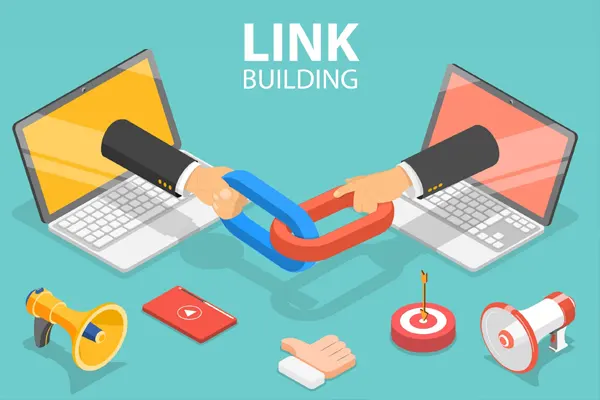Does My Website's Speed Affect Its Google Ranking?
Website speed is more than just a convenience—it’s a critical factor in how Google ranks your site and how users perceive your business. For small businesses like honey producers or yoga studios, a slow website can drive customers away and lower rankings for keywords like “organic honey Malaysia” or “yoga studios near me.” Google’s algorithms prioritize fast, user-friendly sites, making speed a non-negotiable for staying competitive. This article explores how website speed affects your Google ranking, why it matters, and actionable steps to improve it, ensuring your business thrives online.
1. Why Website Speed Matters for Google Rankings?
Google uses site speed as a ranking signal, particularly since its Core Web Vitals update in 2021, which emphasizes user experience metrics like loading time and page stability. A slow site frustrates users, increasing bounce rates—when visitors leave quickly because pages take too long to load. For example, a study by Google found that 53% of mobile users abandon sites that take over three seconds to load. For a business targeting “best organic honey,” a sluggish site could mean lost sales and lower rankings, as Google prioritizes faster competitors.
2. How Speed Impacts User Experience and SEO?
A fast website enhances user satisfaction, which Google rewards with higher rankings. Imagine a customer searching for “yoga studios in Kuala Lumpur” and landing on a site that loads instantly, with class schedules and booking options readily accessible. They’re more likely to stay, explore, and convert. Conversely, a slow site leads to higher bounce rates and lower engagement, signaling to Google that your content isn’t valuable. Speed also affects mobile rankings, as most searches occur on smartphones. Ensuring your site is fast across devices keeps you visible for keywords like “organic honey benefits.”
3. Technical Aspects of Speed That Google Evaluates
Google assesses speed through metrics like Largest Contentful Paint (LCP), which measures how long it takes for the main content to load, ideally under 2.5 seconds. For a honey retailer, a product page with large, unoptimized images could push LCP beyond this threshold, hurting rankings. Other factors include server response time and page stability (avoiding layout shifts). Tools like Google PageSpeed Insights can pinpoint issues, such as heavy JavaScript or uncompressed images, helping you optimize for searches like “local yoga studios.” Addressing these technical elements aligns your site with Google’s expectations.
4. Practical Steps to Improve Website Speed
Improving site speed requires a strategic approach. Start by optimizing images—compress them without sacrificing quality using tools like TinyPNG. For instance, a yoga studio’s homepage with high-resolution banner images can be streamlined to load faster. Next, leverage browser caching to store static files, reducing load times for returning visitors. Minimize heavy code, like excessive CSS or JavaScript, to ensure pages render quickly. Finally, consider a content delivery network (CDN) to serve your site from servers closer to users in Malaysia, speeding up access for searches like “buy organic honey online.” These steps enhance both user experience and rankings.
5. Common Speed-Related Mistakes to Avoid
Many businesses unknowingly sabotage their rankings with speed issues. Overloading pages with large media files, like videos on a honey product page, slows load times and frustrates users. Neglecting mobile optimization is another pitfall, as a site that performs well on desktops may lag on smartphones, alienating mobile users. Failing to monitor server performance can also cause delays, especially during traffic spikes. Regularly test your site with GTmetrix or Lighthouse to catch these issues early, ensuring consistent performance for keywords like “yoga studios in Penang.”
6. Measuring and Monitoring Site Speed
To stay ahead, regularly monitor your site’s speed. Google Search Console provides Core Web Vitals reports, highlighting pages that need improvement. For example, a slow-loading blog post on “health benefits of organic honey” could be dragging down your rankings. Use tools like Pingdom to track server response times and identify bottlenecks. By consistently analyzing performance and making incremental improvements, you ensure your site remains competitive, even as Google’s algorithms evolve.
7. The Role of Professional SEO Expertise
Optimizing website speed can be complex, requiring technical know-how. Professional SEO services offer a lifeline by conducting in-depth audits to identify speed issues, optimizing images and code, and implementing advanced solutions like CDNs. They can tailor strategies to boost performance for keywords like “organic honey Malaysia” or “yoga studios.” Ready to make your site lightning-fast? Contact our expert SEO team to enhance your speed, improve rankings, and attract more customers!
Conclusion: Speed Up Your Site for Google Success
Your website’s speed is a critical factor in Google rankings, directly impacting user satisfaction and visibility for keywords like “organic honey” or “yoga studios.” By optimizing images, leveraging caching, minimizing code, and monitoring performance, you can create a fast, user-friendly site that Google rewards with higher rankings. Don’t let a slow site hold your business back—contact our professional SEO team today to audit your site, boost its speed, and dominate Google search results. Let’s accelerate your path to the top!
Our Services
Related News
Frequently Asked Questions (FAQ)
How often should I check my website’s speed?
Test monthly or after major updates to catch issues like slow “Kelas Tarian Kuala Lumpur: Strategi Pemasaran Digital untuk Studio Tarian Kecil’ oleh penerbit jem di laman web Food and Wine”arge images or slow scripts.
Does website speed affect paid search rankings?
Speed doesn’t directly impact paid ad rankings, but a fast site improves user experience, potentially boosting ad conversion rates.
Can I improve speed without technical skills?
Basic fixes like image compression are manageable, but complex optimizations like code minification often require professional expertise.









